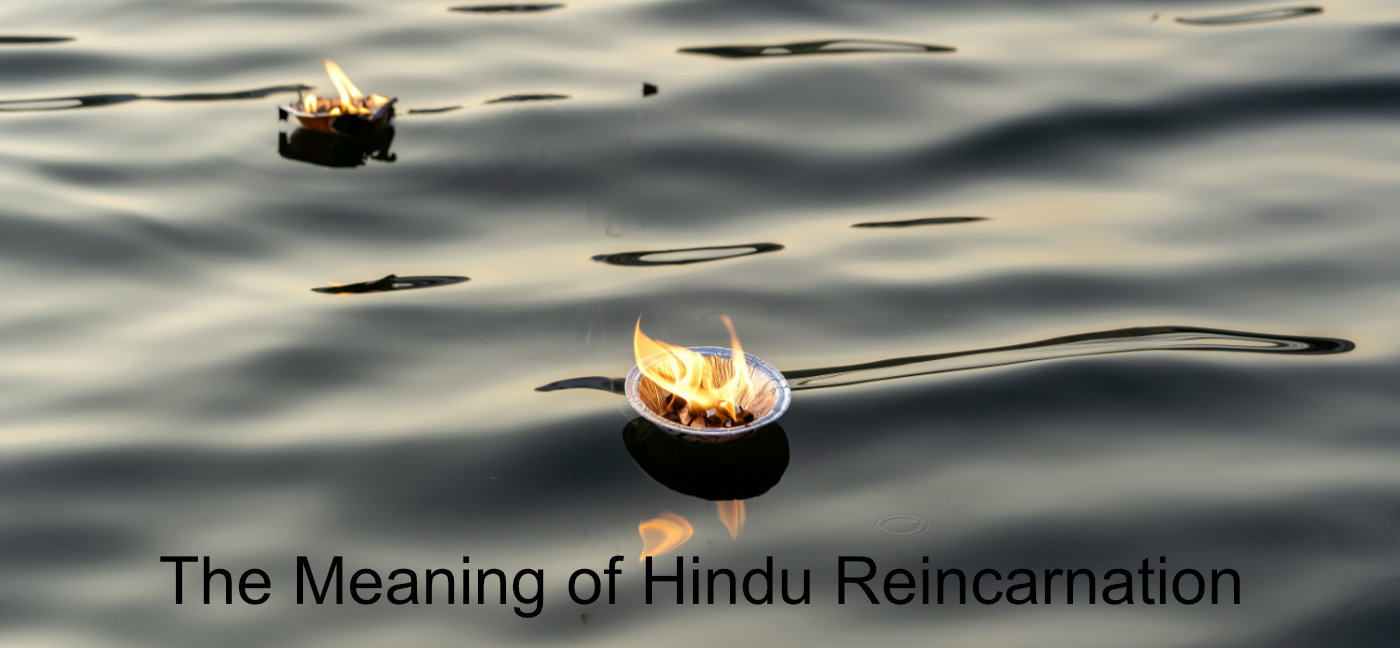The Meaning of Hindu Reincarnation

Hinduism religious ceremony puja flowers and candle on the sacred river Ganges water in Rishikesh, India, close up
In recent years, reincarnation has become a popular theme in mainstream culture. References to rebirth abound in films, television programs, media, and literature. Belief in past lives, once considered weird and abnormal, is now becoming increasingly frequent in America.
One of the most ancient and developed theories of reincarnation comes from India. Almost all Hindus, whether rich or poor, educated or illiterate, male or female, understand and believe in the transmigration of the soul. Reincarnation permeates Hindu literature, philosophy, and everyday life.
In the Bhagavad-gita, the jewel of India’s spiritual wisdom, Lord Krishna explains reincarnation by an analogy. He says:
“As a person puts on new garments, giving up old ones, the soul similarly accepts new material bodies, giving up the old and useless ones.”
The body is like a garment for the spirit soul, which is eternal and spiritual. Some of us wear the clothes of a male body, others a female body, and yet others may wear the clothing of an animal.
Although reincarnation may seem like a difficult and foreign concept, the Bhagavad-gita reminds us that we are all in fact changing bodies, even now. We once had the body of a baby, and then the body of a small child. These bodies are now dead and gone. The molecules that composed them have vanished, and we now have a new, adult’s body. This process continues until death, when the change happens all of a sudden.
What determines our next body? Who decides where we go after death? The body of Hindu texts called the Vedas tell us that our future birth depends on the kind of life we live now. If we develop the mentality of an animal — living only for the purpose of eating, sleeping, mating, and defense — we will get the body of an animal. But if we live a humane life, we will receive a human body. If we give pain to others in this life, we will suffer in the next. But if we do good, we will receive happiness. This law of action and reaction is called karma.
Ultimately, the goal of reincarnation is not to keep coming back again and again, but to stop reincarnating once and for all, and attain eternal life. The way of doing this is called yoga. By dedicating all our thoughts, words, and actions to the service of God, we can obtain his grace, and thus transcend the cycle of birth and death.
Whatever progress we make on this path to liberation is never lost. It stays with us throughout our journey of many lives, so that step by step we can make our way back home. Indeed, for Hindus, the doctrine of rebirth embodies a great sense of hope — a hope for the future, a hope for constant improvement, a hope for eternal happiness. It embodies the conviction that no matter how late it is, it is never too late to change.
Ravi M. Gupta is Director of the Religious Studies Program at Utah State University. He is the author or editor of four books, including an abridged translation of the Bhagavata Purana.



